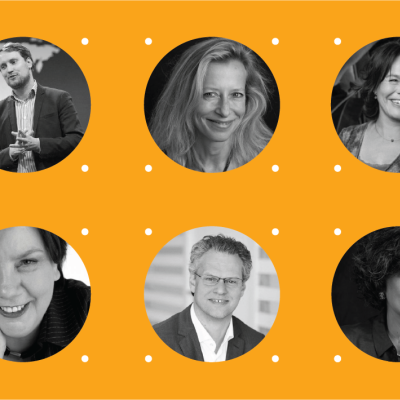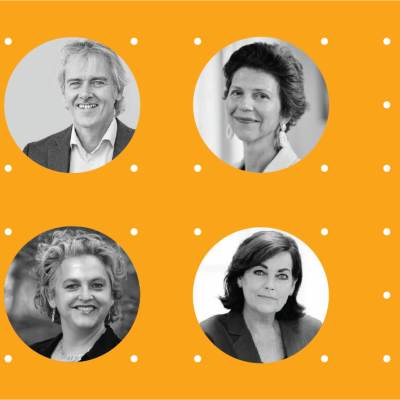"It is our aspiration that all people of Amsterdam with disabilities have an opportunity to become participants in our city"
participants
Agnes Jongerius
Member of the European Parliament, for the PvdA. Delegation leader. Social Affairs Committee.
As a Member of the European Parliament, Agnes deals with the subjects of employment, social affairs, working conditions and trade in the European Parliament. Agnes recently managed to get the European bill for fair minimum wages through the European Parliament’s Social Affairs Committee.
Jacobine Geel
President of the Institute for Human Rights.
“In order to participate in a society, someone must also be able to participate. That is not obvious to everyone. says Jacobine. “In every society, including the Dutch, not everyone can realize his or her rights in the same way.”
Her many years of involvement in the mental health care system has sharpened this awareness, and her motivation to change this has only increased. Jacobine sees the presidency of the Netherlands Institute for Human Rights as a unique opportunity for this.”
Ann Branch
Head of Unit, European Commission – Leading work on social economy and social and inclusive entrepreneurship.
The European Commission plans to present a new social economy action plan in December 2021. With the Action Plan, the Commission will propose a coherent set of measures to create the right conditions for the social economy to thrive and its potential to contribute to fair, sustainable and inclusive growth.
Ann Branch will discuss the importance of the social economy and the new action plan and the European Commission.
Frank Kalshoven
Economist, columnist and director at the Argumentenfabriek.
Frank Kalshoven has, among other things, participated in the Work Regulation Committee that produced the report ‘In what kind of country do we want to work’ in 2020.
We can choose growth and also how we want to achieve that, says Frank Kalshoven. By rethinking how we organize human life, an economy can emerge where people work more than they do now and in which we invest more in human capital than we do now. In this way, growth land is created automatically.
Illya Soffer
Director of Ieder(in), Network for people with a disability or chronic illness.
Illya Soffer is director of Ieder(in). Based on a strong social – and also personal – involvement, she has chosen to be the director of Elke(in)., “I want to do everything I can to give people with disabilities a fully-fledged place in our society”.
Tine de Moor
Professor Social Enterprise & Institutions for Collective Action at Rotterdam School of Management, Erasmus University.
In recent years Tine has done a.o. research into the origin, functioning and evolution of collective action institutions, past and present. Topics investigated by her research team are the many energy and care cooperatives that have developed in recent decades, the initiatives of citizens in the field of short-chain food supply, the formation of platform cooperatives and the renewal of the mutual as a form of insurance for the self-employed. In addition, she has conducted research on labor market participation and family formation patterns over the past millennium and has been actively involved in the development of innovative research methods, including through several Citizen Science Projects.
Karel Vanderpoorten
Policy Officer Social Economy DG GROW European Commission.
Karel mainly focuses on the following themes: using digitization and new technologies within the social economy, scaling up social business models and creating business partnerships between traditional and social economy enterprises, financing opportunities for social economy enterprises and social innovation.
Arend Pieterse
Director Cedris, the national association for an inclusive labor market.
Within Cedris, Arend is working hard to create an inclusive labor market. The members, now more than 100, are working on this day in day out. They are always committed to opportunities on the labor market for people for whom a normal job is not very common.
Carol Gribnau
Director DOEN Foundation
In her role as director of the DOEN Foundation, Carol argues for a link between social inequality and sustainability, which the government currently pays too little attention to. “The sustainable transition needs to be tackled in a smarter way, so that everyone can participate and the transition really takes off from the masses. People with a lower income should also be included in the transition. It is not surprising that you create resistance when sustainability is only for the rich.”
Brigit Toebes
Professor, Health Law in International Perspective
Prof. dr. mr. dr. B.C.A. (Brigit) Toebes is affiliated with the Global Health Law Groningen Research Centre, Department of Transboundary Legal Studies at the Faculty of Law of the University of Groningen. Brigit is a specialist in international law and human rights. She has twenty-five years of research experience at the intersection of human rights, international law, and health protection. Currently involved in the global discussion of ‘international health law’ as a new discipline under international law.


